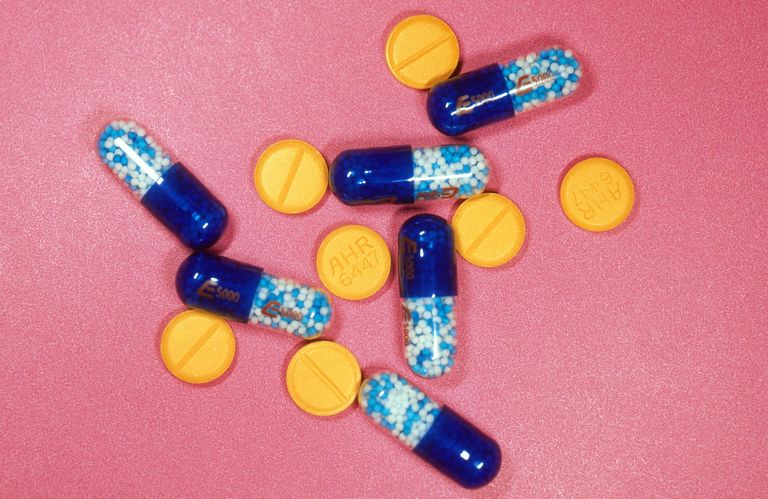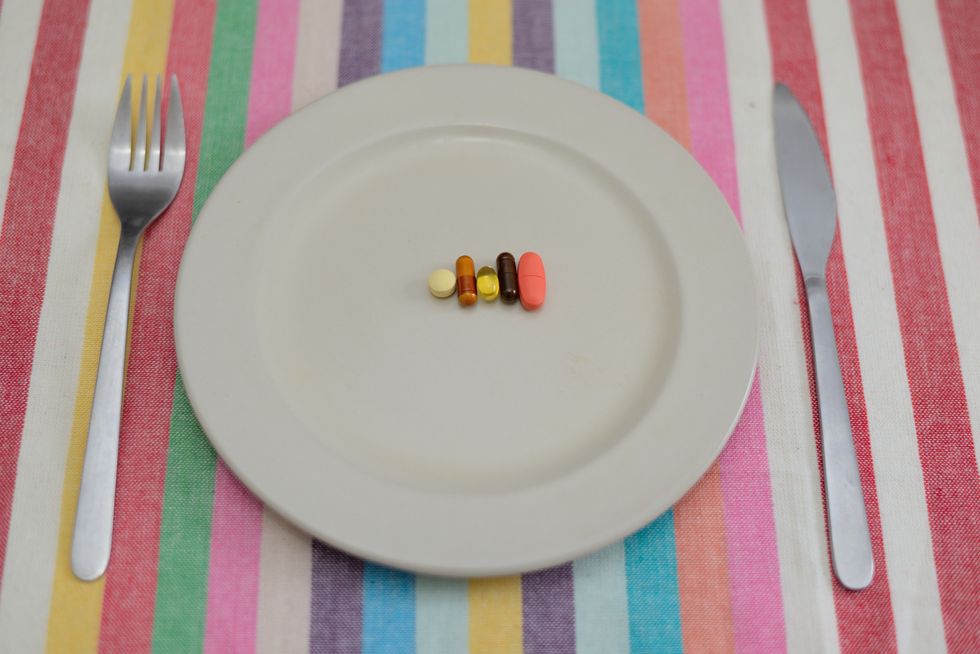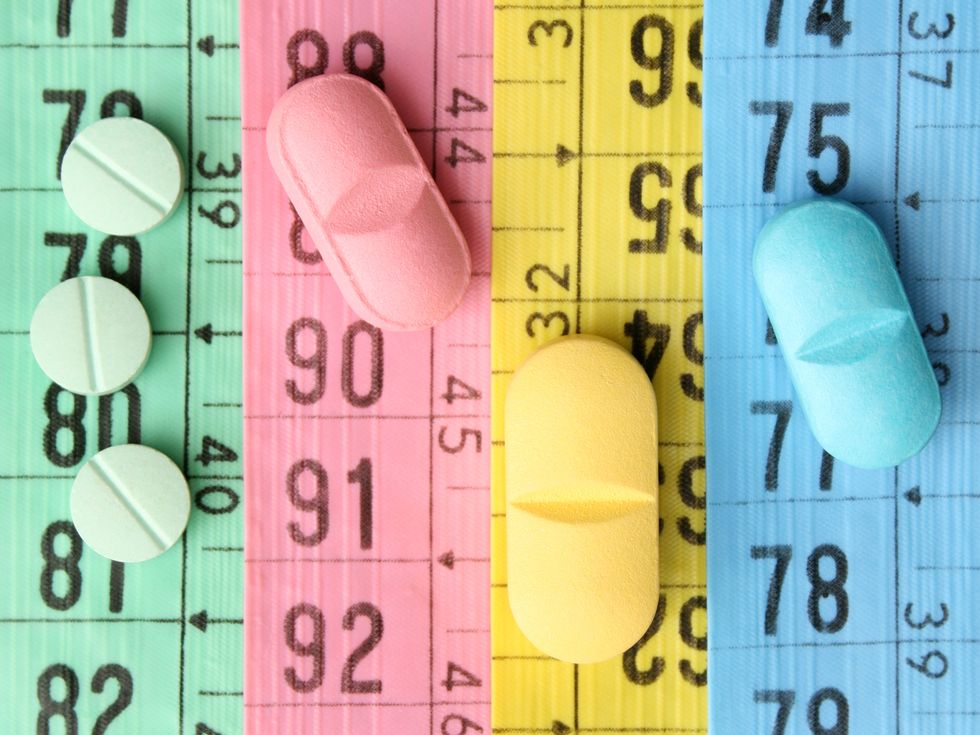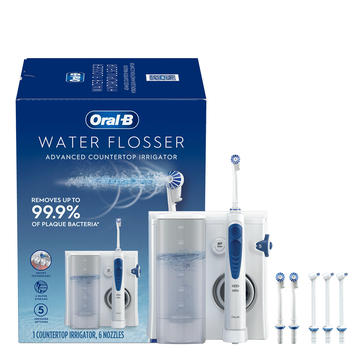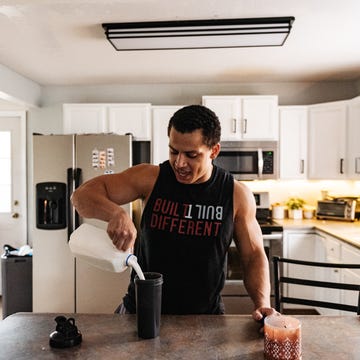Samone Senevoravong first heard about OxyELITE Pro during the summer of 2013. She was 33 at the time, a busy single mother of two from Cleveland, trying to stay in shape and drop a few pounds. One day in June, Samone told her running buddy she was too tired to work out. Her friend gave her OxyELITE Pro, a weight-loss supplement she said would give Samone the energy she needed to push through it. "I felt like I had downed about three cups of coffee," she recalls. "And I thought, This is great."
When she went to buy some at a major health store, the salesperson mentioned that one version of the product, which contained a stimulant called DMAA, had been recalled after the ingredient was believed to be linked to the deaths of 4 soldiers who collapsed during training. Samone wasn't worried; she assumed there was more to the story (and in fact, a Pentagon investigation couldn't find direct evidence that DMAA was responsible for those deaths). Plus, the new formula was different, the sales person told her. "We agreed that the soldiers had probably misused it," Samone says. As long as she followed the package directions, she told herself, she would be fine.
With that purchase, Samone joined the roughly 1 in 5 women in the U.S. who have tried a weight-loss supplement, according to the National Institutes of Health Office of Dietary Supplements. But the illness that soon plagued Samone and other consumers reveals a troubling truth: This industry, which taps in to our weight-loss aspirations and includes OxyELITE Pro and hundreds of other supplements, is extremely difficult to regulate. The lack of well-enforced rules can put well-intentioned women at risk.
By law, dietary supplements can only contain ingredients that are already found in the food supply or can be extracted from nature without changing their chemical makeup. The chief ones in weight-loss products run the gamut from herbs you've heard of (like green tea extract) to nature's more unusual offerings (chitosan, which is derived from shellfish exoskeleton) to plain old caffeine. You can swallow them as capsules, reconstitute them from powders, chew them as candy, and brew them as teas. About the only thing they have in common is the promise that they'll help you slim down. They're marketed as fat burners, metabolism boosters, and appetite suppressors.
The manufacturers of weight-loss supplements say their products are meant to heighten the effects of diet and exercise, but many doctors believe they shrink little more than your wallet. "When you look at the evidence, there isn't much support for any of them," says Melinda Manore, Ph.D., of Oregon State University, who published a review of the research in 2012. It's one thing if a supplement is potentially useless; it's another if it's potentially dangerous. Some supplement companies are using ingredients that are untested, undisclosed on the labels, and just plain risky, according to Food and Drug Administration (FDA) reports.
These products exploit weaknesses in a system that's supposed to protect consumers. A law passed in 1994 puts supplements in the same camp as foods, not drugs — which allows them to bypass the rigorous testing that ensures medications are safe and effective before they hit shelves. Companies are required to notify the FDA only if they plan to market an ingredient that's never been used by the food or supplement industries, but not all of them do. Even if experts believed that weight-loss supplements work, "you don't know what's in them," says Tim Blood, a San Diego attorney who was involved in a class action lawsuit against the weight-loss product Hydroxycut. (The manufacturer settled for $14 million in 2014, but didn't admit to any wrongdoing.)
The FDA attempts to ensure safety after supplements have hit the market, largely through random spot checks of shipments to distributors. That means operators who slip undisclosed ingredients or even prescription drugs into their products know the odds are in their favor that they won't get caught, says Pieter Cohen, M.D., a Harvard Medical School assistant professor who has built a reputation as a dietary supplement watchdog. "Just trying to find which ones are spiked with pharmaceuticals is a massive, complicated, inefficient undertaking," he says.
It's Consumers Who Pay the Price
In July 2013, about a month after she first took OxyELITE Pro, Samone started having abdominal pain. Then it was nausea, sweating, extreme fatigue. She always had an explanation: She had eaten something bad. She was frazzled. It never occurred to her that the pills might be contributing to her symptoms, and she was determined to lose weight, so she kept taking them. "I was in my 30s and healthy," she says. "I didn't think for a second that something might actually be wrong."
Thousands of miles away, people like her were also getting sick. On August 17, 2013, Marina Roytman, M.D., an internist at The Queen's Medical Center in Honolulu, admitted her fifth patient in four months for acute liver failure. Normally, she saw only a couple of cases a year. More puzzling, these five had seemed fine until their hepatic function crashed. "It was serious," she says. "Two of them would have died without liver transplants."
The only thing Roytman's patients had in common: Each had taken OxyELITE Pro prior to getting sick. So in early September, she called the FDA to report her suspicions. To her dismay, she found that "it's not the easiest thing to contact the agency. You go through a bunch of messages and you have to keep saying that this is an emergency. Eventually, you do get to talk to a real person." Despite Roytman's attempts to convey that the situation was urgent, her calls were not returned.
Two weeks later, with the FDA still silent, The Queen's Medical Center doctors contacted the Hawaii State Department of Health. Within 24 hours, state officials reviewed the medical records and put out a health advisory. Finally, on November 9 — two months after Roytman first tried to get through to the FDA — the agency announced that Dallas-based manufacturer USPlabs was voluntarily recalling OxyELITE Pro after it was found to contain a new, undeclared ingredient called aegeline. (The company's attorneys deny that it was new.) By then, the patient count in Hawaii had risen to 43, though the cause of the illnesses was still under investigation.
Back in Cleveland, Samone had landed in the ER too. After months of unexplained symptoms, one of her friends noticed that her eyes and skin had turned yellow — a classic sign of jaundice. Still, Samone showed up to her job at a market research firm. When coworkers also commented on it, she got scared. "I told my boss, 'I'm leaving early. I need to go to the hospital.'" There, a liver specialist quizzed Samone on everything she had done and eaten. "He Googled OxyELITE Pro and said, 'Do you know there's been a recall on this?'" Samone says. She thought he was talking about the first recall, and said she did. Then they checked the date and found that the new version had been recalled, too, only days before. Samone listened in horror as the doctor told her how close she'd come to liver failure — and she hadn't even taken as much as the package recommended. "I still think, If I'd followed those instructions, I could be dead."
Recalls In the Age of the Internet
When the FDA discovers a supplement with an illegal ingredient (usually during one of those random searches), the agency warns the public on its website and asks manufacturers and sellers to pull their inventory in a voluntary action. Often, they cooperate; sometimes, they don't. In 2010, Cohen, who is also an internist, started treating women who'd become sick after taking a weight-loss product called Pai You Gou. It was supposed to be off the market, but his patients didn't know and kept buying it, he says. A study he conducted later revealed that at least two thirds of the weight-loss supplements that were recalled between 2009 and 2012 for containing drugs were still for sale by their manufacturers, and most of them hadn't changed their formulas.
Even if manufacturers do cooperate, consumers can't always count on stores to pull products from the shelves. "Getting the information to retailers quickly can be a challenge," says Daniel Fabricant, Ph.D., chief executive officer of the Natural Products Association, a trade organization that alerts members (including retailers) to tainted supplements. After all, a lot of shops may not have the manpower to cull the FDA's recall announcements.
Then there's the problem of the Web. Doctors in Hawaii were still finding places to buy OxyELITE Pro online nine months after the recall. Attorney Peter Hutt, who represents the manufacturer USPlabs, says company leaders wanted to comply with the recall — even though, he says, the people who became ill "had been sick for years," not suddenly after taking OxyELITE Pro. "But you can't send somebody around to visit every health food store and gas station in the country," Hutt says, much less trace every Internet retailer. Even if you could, attorney Blood adds, they may simply list the product as "out of stock" instead of "off the market." A determined shopper will keep Googling until they find it somewhere else.
In written responses (officials declined our request for interviews), the FDA seemed to share those frustrations: "The network of distributors, wholesalers, and retailers of tainted products is diffuse and fragmented and they can be difficult to locate," they wrote us. "These individuals and businesses are often not registered with the FDA, operate out of residences, and distribute via the Internet, social media, small stores, and mail."
In fact, the FDA doesn't have accurate information for 20 percent of supplement companies, including manufacturers, according to an investigation by the Inspector General. Products are also created all over the world, out of sight of the FDA — a lesson Sainah Theodore of Queens, NY, learned the hard way.
In 2012, the then 26-year-old Army Reservist bought a supplement called Natural Lipo X from a locally owned health food store. It was supposed to be no more than an herbal blend that would help burn fat, but within days of taking the green capsules, Sainah began suffering from insomnia, eventually falling into a psychosis that, among other things, caused her to cut up her mattress and pillows. "My family was so frightened," she remembers. Sainah was admitted to a psychiatric ward, where she slept for almost 24 hours before waking up confused and embarrassed. A lawsuit she filed against the store says the product contained two illegal stimulants. Going after the shop was her only recourse — she found it nearly impossible to determine who had manufactured the pills themselves. Eventually, her lawyers traced them to a company in China.
Making the Smart Choice
Years after OxyELITE Pro and Natural Lipo X made headlines, the landscape is largely the same. For consumers who remain undeterred by the potential dangers, Sainah's attorney Marc Ullman suggests checking the label for a domestic address, as well as a "supplement facts" box, before making a purchase. If either is missing, "it's clear the company doesn't care enough to comply with the most basic guidelines," he says.
Neither the packaging nor the regulations currently in place were enough to protect Samone and others. The makers of OxyELITE Pro are based in Texas, and aegeline — the ingredient that gave the FDA the means to act quickly — was discovered only after people started filling ERs, not in a random check of inventory. (USPlabs says it's a safe, synthetic version of a compound found in an Asian tree, and the exact source of the illnesses was never found. At press time, the company had settled with several plaintiffs for what Hutt calls "nuisance value.")
While industry officials are concerned that fraudulent companies give all supplements a bad name, Fabricant, who is a former head of the FDA division of dietary supplements, believes the solution is better enforcement of the law, not changing it entirely. The government could focus on bringing swift criminal action against manufacturers in the form of misdemeanor charges, which move faster through the courts than felonies, he says. He also points out that no CEO wants a conviction, big or small, on his or her company's record.
Still, consumer advocates feel that weight-loss supplements, like medications, should be tested before they hit the market. "Even natural ingredients can be harmful," says Victor Navarro, M.D., chair of hepatology at Einstein Healthcare Network in Philadelphia, where he studies cases of liver damage linked to supplements. "At this point, there's often not enough science to determine why injury occurs or what these ingredients do inside the body." This means if you choose to buy them, you do so at your own risk.
Samone is done with that kind of gamble. She spent a week and a half in the hospital in 2013, awaiting the results of a biopsy of her liver. When doctors told her she wouldn't need a transplant, "it was a huge relief," she says, though she admits the experience has changed her. Once a social drinker, she's now a teetotaler. And while she's still trying to lose a little weight — with just exercise and eating sensibly now — she tells her friends to avoid the lure of shortcuts. Her advice for women could be a call to the industry, too: "Do it the right way."
Follow Redbook on Facebook.
